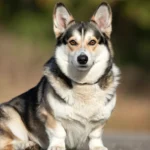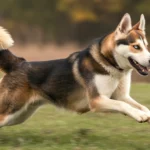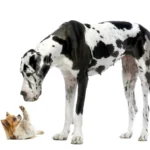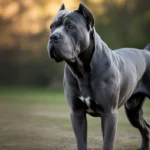King German Shepherd: Traits, Temperament, and Complete Care Guide
If you’ve ever been captivated by the majestic look of a German Shepherd but wished for an even gentler giant, the King German Shepherd might be the perfect match. Known for their massive build, intelligence, and loyal nature, these dogs are more than just large — they’re loving protectors and loyal family companions.
In this guide, we’ll dive into everything you need to know about this impressive hybrid — from their origin and traits to grooming, training, and real-life ownership experiences.
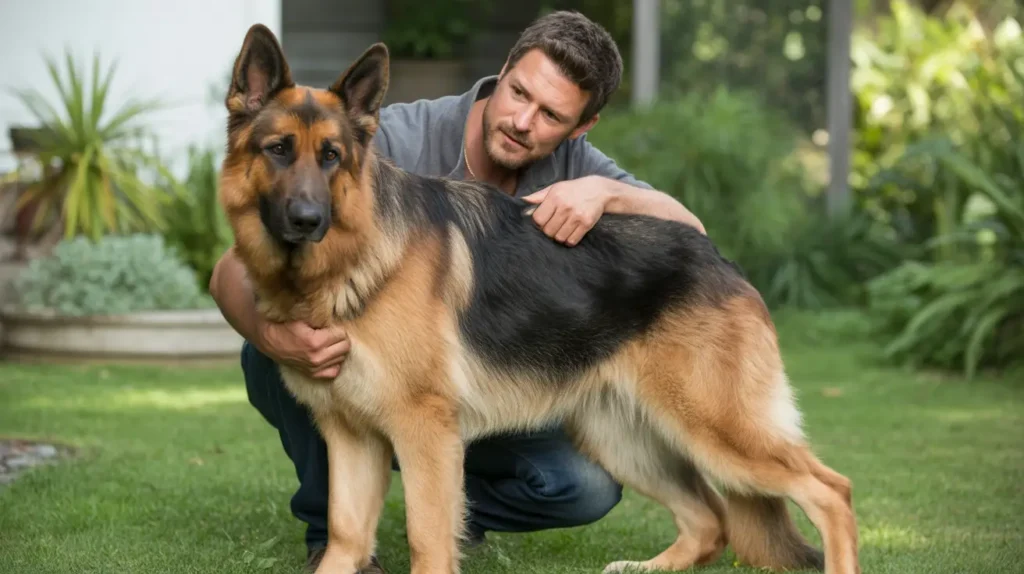
Content
What Is a King German Shepherd?
The King German Shepherd, also known as the King Shepherd, is a large, hybrid breed developed by crossing a German Shepherd with breeds like the Alaskan Malamute or Great Pyrenees. This mix was created to produce a dog with the intelligence and loyalty of the German Shepherd but with a calmer, more family-friendly temperament.
These dogs are known for their massive size — males can weigh between 90 to 150 pounds, and females slightly less. Their large stature, plush coat, and noble posture give them a truly royal appearance, living up to their “King” title.
Exercise Needs: Keeping Your King German Shepherd Active
The King German Shepherd size and energy level mean they need plenty of room to move. These dogs aren’t apartment-friendly — they do best in homes with open spaces or yards.
Aim for at least 1–2 hours of daily exercise, which can include walks, playtime, or agility training. Without enough activity, they may become bored or anxious.
Real-Life Example:
One of my readers, Sarah from Colorado, adopted a King Shepherd named Max. At first, Max would pace and bark when left indoors too long. Once Sarah introduced regular morning hikes and mental enrichment games, Max became calmer and more content. It’s a reminder that these dogs need more than love — they need purpose.
King German Shepherd Traits and Temperament
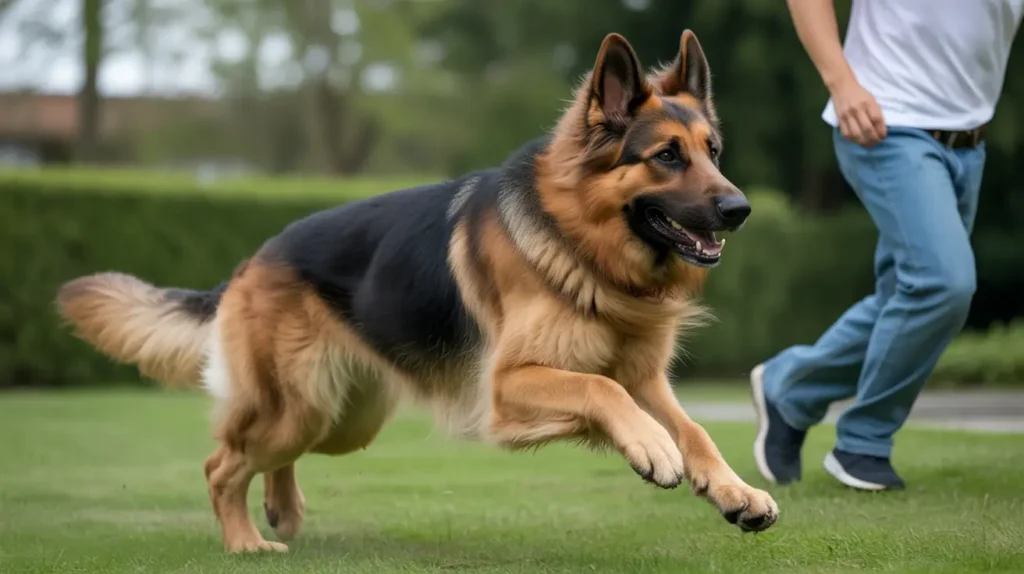
If you’re curious about what sets the King German Shepherd apart, think of them as gentle giants with a protective instinct.
- Temperament: They’re confident, calm, and affectionate. While they may look intimidating, they’re incredibly gentle with their families and often great with children.
- Intelligence: Much like their German Shepherd lineage, they’re highly intelligent and eager to learn. This makes them easy to train when handled by experienced owners.
- Behavior: They can be wary of strangers but rarely aggressive. Early socialization ensures they remain well-rounded and friendly.
Pro Tip: Because of their intelligence and size, they thrive best in homes that can provide both mental and physical stimulation.
Grooming and Coat Care
A King German Shepherd’s coat is thick, luxurious, and weather-resistant — perfect for cold climates but demanding when it comes to maintenance.
- Brushing: Brush them 2–3 times per week to control shedding and keep the coat shiny.
- Bathing: Once every 2–3 months, or as needed.
- Shedding: Be prepared for seasonal shedding — investing in a high-quality deshedding tool is essential.
Tip: Regular grooming also helps you spot potential skin issues or parasites early.
Nutritional Needs of the King German Shepherd
Large breeds like the King German Shepherd need a balanced diet rich in high-quality protein, healthy fats, and joint-supporting nutrients like glucosamine.
Feed them 3–4 cups of premium large-breed dog food daily, divided into two meals. Always consult your vet for specific feeding recommendations based on your dog’s weight, age, and activity level.
Read More About: Pitbull Chihuahua Mix
Common Health Issues and Lifespan
While generally healthy, the King German Shepherd may inherit some conditions common in large breeds.
Watch for:
- Hip and elbow dysplasia
- Bloat (gastric torsion)
- Joint problems due to their size
- Allergies or skin irritations
Their lifespan typically ranges between 10–12 years, but a well-balanced diet, regular vet check-ups, and adequate exercise can help extend their healthy years.
Training and Socialization
Training a King Shepherd can be incredibly rewarding. They’re intelligent and responsive but can also be independent thinkers.
Training Tips:
- Start early with positive reinforcement.
- Use consistent commands and short training sessions.
- Expose them to different environments and people early on.
Because they’re so loyal, they often develop a strong bond with their owners and make excellent guard dogs without being aggressive.
Finding a Trusted King German Shepherd Breeder
When searching for a breeder, prioritize health testing and ethical practices over price or appearance.
What to look for:
- Transparent health records
- Positive reviews and references
- Clean and humane breeding conditions
Avoid breeders who don’t allow visits or fail to provide documentation. Reputable King Shepherd breeders focus on temperament and health first.
Real-Life Case Study: The Story of Bruno
Bruno, a King German Shepherd adopted by a retired police officer named Mark, perfectly illustrates the breed’s personality. Bruno was initially shy around new people but, with proper training and socialization, he became a trusted therapy dog in Mark’s community.
Mark often shares how Bruno’s gentle nature and loyalty helped comfort veterans during local therapy sessions. It’s a testament to how intelligent and emotionally in-tune these dogs can be when raised with love and structure.
King Shepherd vs German Shepherd: What’s the Difference?
The King Shepherd vs German Shepherd comparison often surprises people. While both share similar traits, the King is larger, more relaxed, and bred for companionship rather than police or working roles.
| Trait | King Shepherd | German Shepherd |
|---|---|---|
| Size | 90–150 lbs | 65–90 lbs |
| Temperament | Calmer, gentler | More intense, alert |
| Coat | Thicker, longer | Medium-length |
| Purpose | Family companion | Working/guard dog |
If you want a family-oriented dog with all the intelligence of a Shepherd but less intensity, the King German Shepherd is your royal match.
Conclusion: Is the King German Shepherd Right for You?
Owning a King German Shepherd is both a joy and a responsibility. They’re affectionate, loyal, and intelligent, but their size and energy demand commitment.
If you have space, time, and love to offer, this breed will reward you with unwavering loyalty and a lifetime of companionship. They truly live up to their name — a King among dogs.
If you’re curious about tiny breeds with big personalities, learn more about the adorable Teacup Dog and what makes them so unique.
FAQs
What are King German Shepherds?
King German Shepherds are large, gentle hybrids bred from German Shepherds and other big breeds for size and a calmer temperament.
What’s the difference between a regular German Shepherd and a King German Shepherd?
A King German Shepherd is larger, more relaxed, and bred mainly as a family companion, unlike the high-energy working German Shepherd.
How much bigger is a King Shepherd than a German Shepherd?
King Shepherds can weigh 90–150 lbs, nearly 30–60 lbs heavier than a standard German Shepherd.
How rare is a King Shepherd?
King Shepherds are relatively rare since they’re not officially AKC-recognized and are bred selectively for temperament and size.

Jerry takes a deep dive into the aquatic world. He’s your go-to for setting up the ideal fish tank, with expert advice on water quality and fish care.


